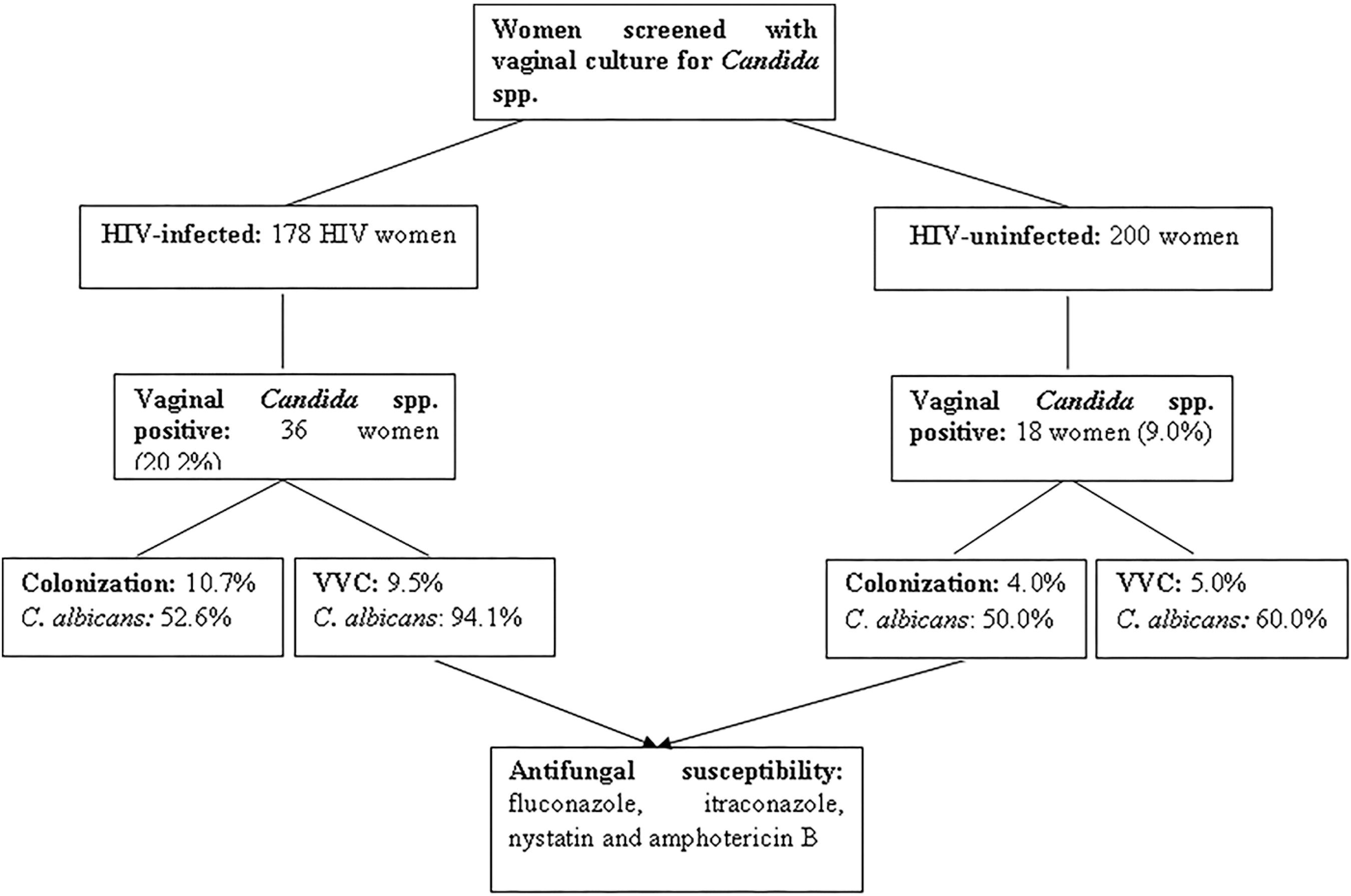Vulvovaginal candidiasis (VVC) in HIV-infected women contributed to the impairment of their quality of life. The aim of this study was to evaluate the effect of highly active antiretroviral therapy (HAART) use on the vaginal Candida spp. isolation in HIV-infected compared to HIV-uninfected women. This cross-sectional study included 178 HIV-infected (HIV group) and 200 HIV-uninfected women (control) that were studied at the Specialized Assistance Service (SAE) for sexually transmitted diseases (STD)/AIDS of the city of Maringá, Brazil, from April 1 to October 30, 2011. The yeasts were isolated and identified by phenotypic and molecular methods. The in vitro antifungal susceptibility to fluconazole, itraconazole, nystatin and amphotericin B was tested by the reference microdilution method. Higher frequencies of total vaginal Candida spp. isolation were found in the HIV-infected group than in the control group. However, both groups showed a similar frequency of colonization and VVC. Although C. albicans was the most frequent and sensitive to azolics and polyenes in both HIV-infected and uninfected women, the emerging resistance of C. glabrata to amphotericin B in the HIV-infected women was observed. Although higher frequency of vaginal Candida spp. isolation had been observed in the HIV-infected than in HIV-uninfected women, colonization and VVC showed similar frequency in both groups, indicating that HAART appears to protect against vaginal colonization and VVC.

